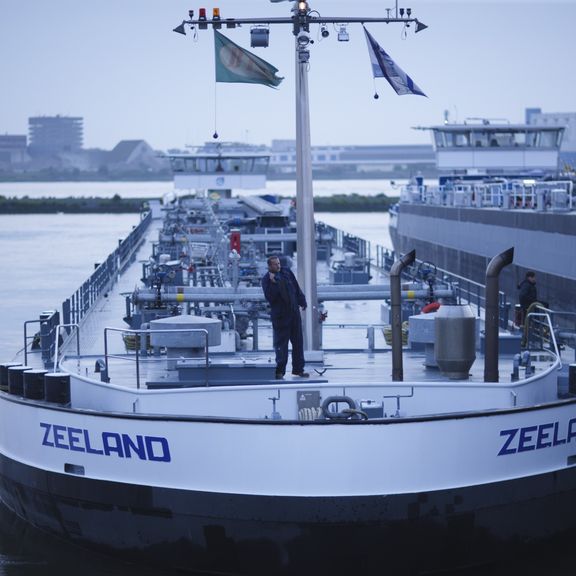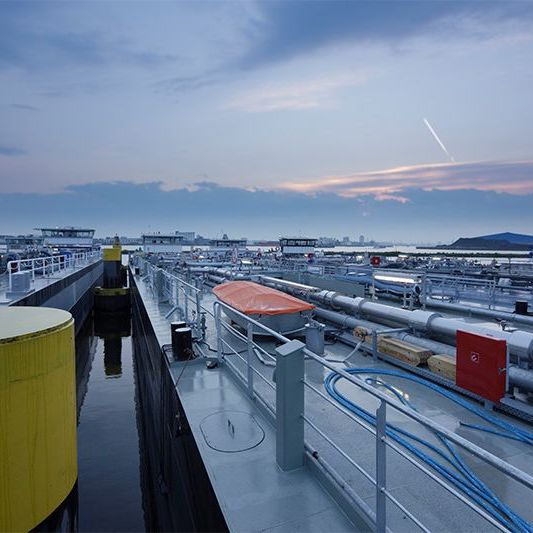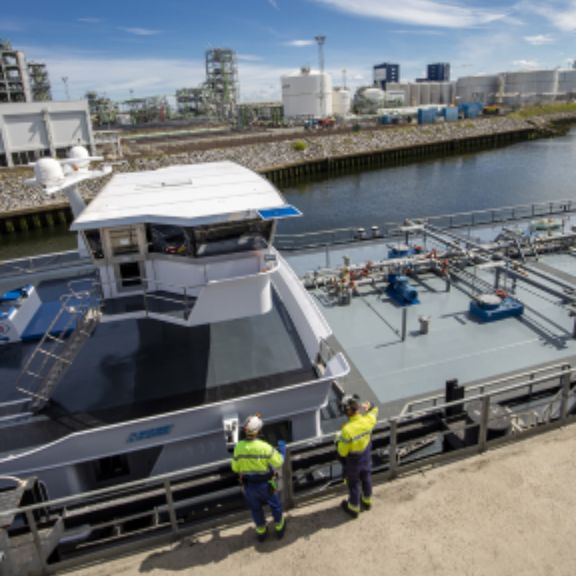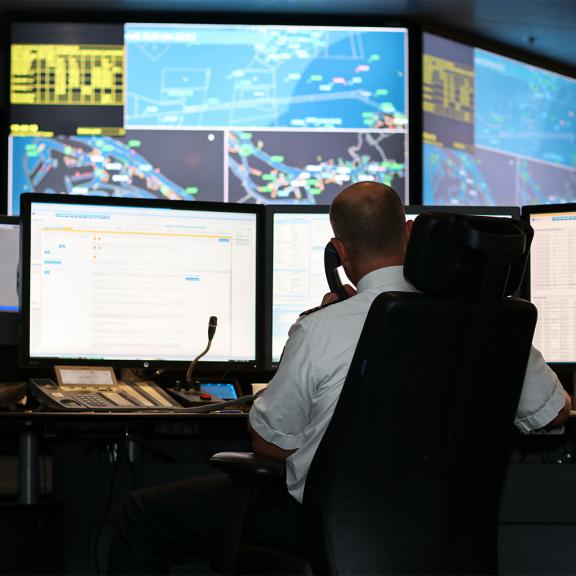
Hazardous substances
In the port of Rotterdam, inland vessels carrying hazardous substances are subject to specific rules. Hazardous substances can cause danger, damage or serious discomfort to people, animals and/or the environment.
Examples include petrol, natural gas, LPG and products produced by the chemical industry. The ADN (European Agreement concerning the International Carriage of Dangerous Goods by Inland Waterways) applies to hazardous substances transported by inland vessels. The Rotterdam port by laws contain the rules pertaining to hazardous substances in the port of Rotterdam.
Rotterdam port bye laws


Berths for vessels carrying hazardous substances
A tanker loaded with a hazardous substance is not permitted to moor at a berth adjacent to a Petroleum port. This also applies to discharged tankers that have not yet been cleaned. Only the Harbour Master can authorise exceptions to this rule.
A tanker does not require permission when:
- the tanker carries a cleaning certificate on board;
- the tanker is, or on its last trip was, exclusively loaded with a flammable liquid whose flash point was 55°C or higher.
Container or general cargo vessels with certain quantities of hazardous substances on board are not permitted to berth in proximity to residential areas.
Use of Petroleum ports
When vessels are required to load, discharge or bunker in a Petroleum port (Petroleumhaven), they are only permitted to do so under certain conditions.
Cleaning cargo tanks
Special berths and mooring buoys are designated for cleaning actions, such as washing and ventilating cargo tanks. Cleaning actions in a Petroleumhaven near jetties and/or quays are exclusively permitted if the relevant company grants permission for this. You must report cleaning actions to the Harbour Coordination Centre in advance.
Decontaminating and gas-freeing
Under certain conditions, the Harbour Master may give permission for decontaminating cargo by injecting gas and for gas-freeing holds.
More information? Contact:
